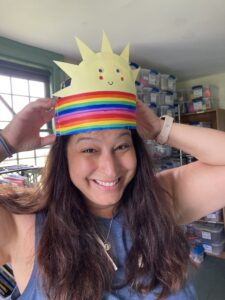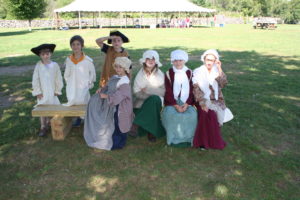 Casey Farm
Casey Farm
Children’s Education Programs

The education programs at Historic New England’s Casey Farm are deeply embedded in natural history and agriculture within a historical setting. Since inception, the education programs have grown to serve over 20,000 children per year.
Through Project CHICK: Chickens Hatching in Classrooms, and its follow up field trip, school children from across Rhode Island, Connecticut and Massachusetts visit Casey Farm to learn about life science through poultry farming, from egg collection and incubation to the preservation of historic breeds. Visitors also learn about the importance and care of other heritage farm animals: turkeys, pigs, ducks, rabbits and goats. No visit to the farm is complete without a stop by the gardens and fields where children discover how fruits, vegetables, flowers, and herbs are cultivated.
Casey Farm’s education programs provide a variety of hands-on, experiential learning options for educators and families to choose from. Simple Machines teaches the science behind, and benefits of, doing farm work with the six basic types of simple machines. At the Bay is a hands-on exploration of Narraganset Bay and the rocky shore at Casey Point. On The Farm focuses on the agriculture, soil health, and animal management of farming. Summer Camps combine interactive ways to learn about the farm, bay, forest, pond, and history, all while having fun playing games and making crafts for ages 3 to 13.
 The roots of the Casey Farm education program began in the late 1990s with the first CSA Farm Managers, Mike & Polly Hutchison. With the introduction and expansion of Project CHICK: Chickens Hatching in the Classroom in 1997, the education programs have blossomed, becoming a staple for local elementary school students. Our team of talented and caring teachers provide quality outdoor programming that focuses on experiential, hands-on learning. Picking up the reins of programming in 2023, I have strived to maintain the success and excellence of the educational programs offered at Casey Farm. With sustainability at the forefront of the future for Historic New England, Casey Farm education programs will continue to weave together human history, nature, and agriculture while stressing the importance of conservation, environmental protection, and renewable energy for future generations.
The roots of the Casey Farm education program began in the late 1990s with the first CSA Farm Managers, Mike & Polly Hutchison. With the introduction and expansion of Project CHICK: Chickens Hatching in the Classroom in 1997, the education programs have blossomed, becoming a staple for local elementary school students. Our team of talented and caring teachers provide quality outdoor programming that focuses on experiential, hands-on learning. Picking up the reins of programming in 2023, I have strived to maintain the success and excellence of the educational programs offered at Casey Farm. With sustainability at the forefront of the future for Historic New England, Casey Farm education programs will continue to weave together human history, nature, and agriculture while stressing the importance of conservation, environmental protection, and renewable energy for future generations.
–Josephine DeFusco, Education Coordinator